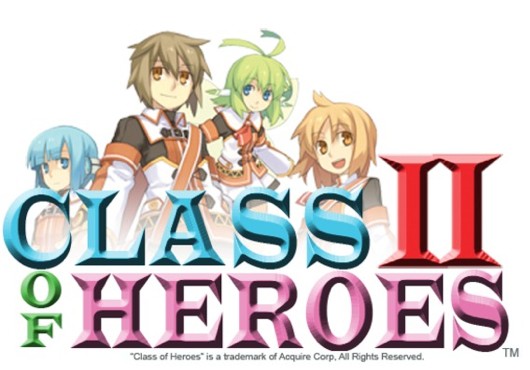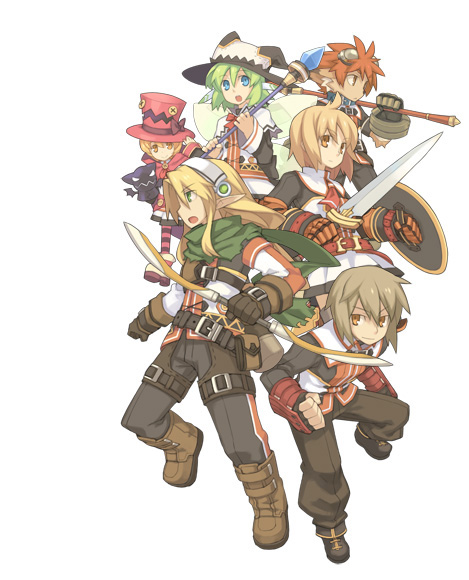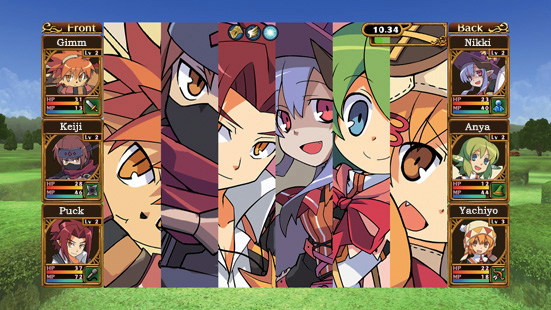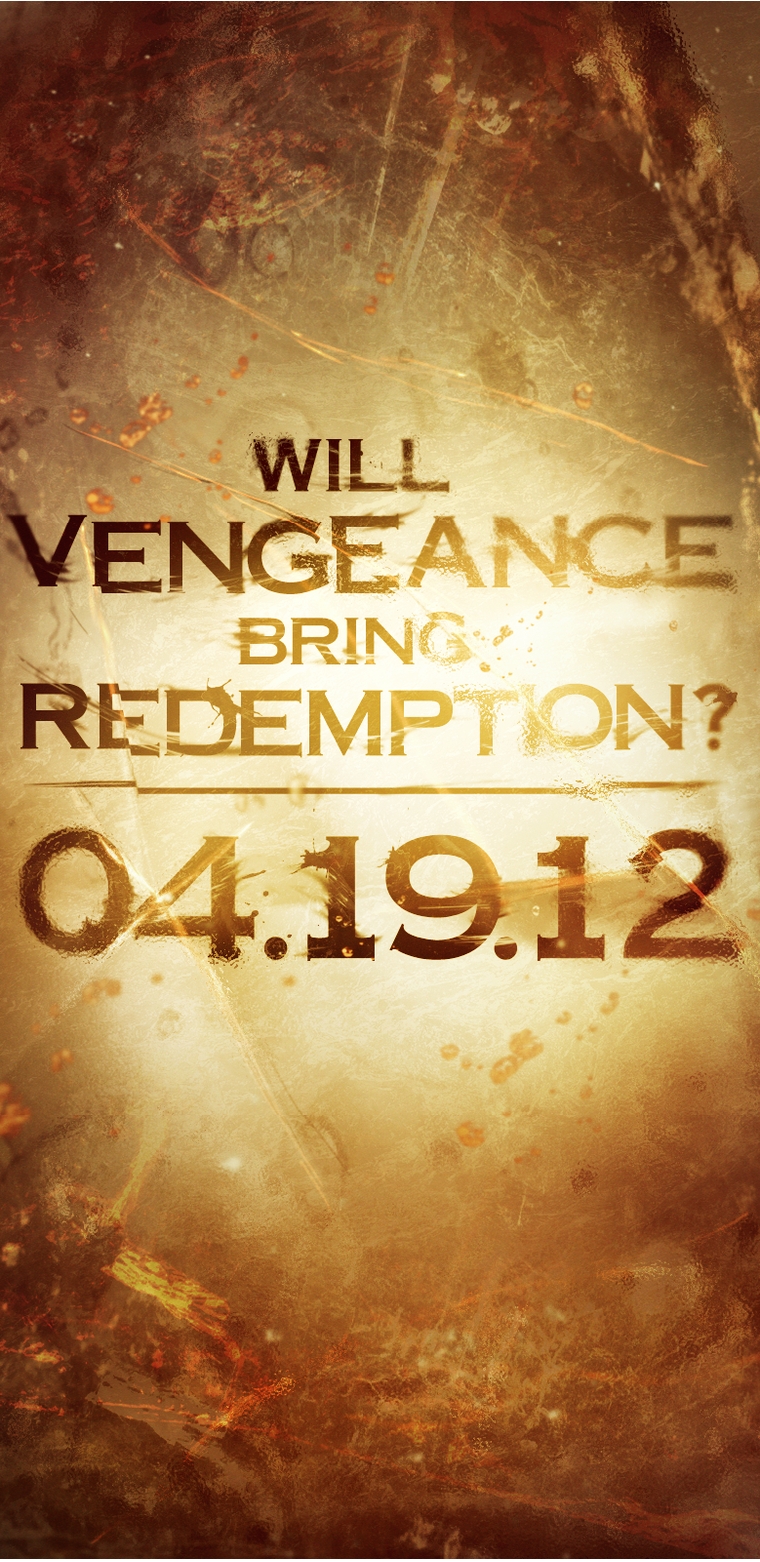The Elder Scrolls V: Skyrim will soon have support for Kinect, benefiting players both in and out of combat. Check out the trailer for a sample of the over 200 vocal commands you can use.
The Elder Scrolls V: Skyrim will soon have support for Kinect, benefiting players both in and out of combat. Check out the trailer for a sample of the over 200 vocal commands you can use.
Turner wanted to celebrate the launch of TNT in Belgium, so they decided to some something unique. They placed a big red button in an unassuming town and waited for someone to push it…
Google+ is evolving and it’s adding a ribbon for users to place what appear to be apps. Also included is a video with easy instructions on how to set up your account.
Launching today thanks to GameStop and Prototype 2, fans will get the chance to add their very own voiceover to some of Prototype 2′s biggest trailers (with new video content being added on a weekly basis) and share their creations with friends. To celebrate the launch of Proto-Mic, YouTube star Toby “Tobuscus,” has created his own LITERAL Prototype 2 Red Zone trailer {video link no longer active}.
JRPGs have always had something of a rough go in the West, as they’ve always have been more of a challenge to localize and their audience is considered more of a niche. However, localizing JRPGs has gotten more challenging more recently, enhanced by the market differences that puts more primacy on the PSP in Japan than it receives elsewhere. However, Victor Ireland of Gaijinworks saw an opportunity with the rising phenomenon of Kickstarter for gaming to start one for Class of Heroes 2. We caught up with Ireland, who’s fought the fight of localizing Japanese for over two decades, about this latest initiative.
[a]list: Tell me about how this particular project got put together.
Victor Ireland: MonkeyPaw Games and Gaijinworks have been working together for over two years, on projects seen and (so far) unseen. We started by getting the old Working Designs games I did on PSN and while that was underway we were looking for expanding our company relationship with some new localizations of RPG and related product as sort of a Working Designs 2.0. That’s when we started talking to Japanese publishers and laying the groundwork for what we’re doing now. I initially brought up doing something like Kickstarter idea early last year, and it really became a goal around last Fall for us to get a console product up with one.

[a]list: Do you hope that this will lead to certain more niche JRPG titles to get their funding without having to deal with doubting publishers?
Victor Ireland: We’re actually in the publishing position, and we have no doubts. The doubt for a niche localization publisher in this position traditionally comes in from either the Japanese publisher (doubtful of licensing or asking crazy license fees), the retailers (not interested in stocking adequate product, sometimes 1 per store or less), or the console maker, who must approve a product that will take up space on their retailer’s shelves and may not approve it so they can reserve shelf space for more mainstream product.

Kickstarter for a direct to fan physical publishing model solves two of the three, and a lot of discussion and a track record in the segment helps with the doubting Japanese publishers. One of our goals in getting this Kickstarter to the funding goal is to make it easier to convince them that this is a viable model, making ongoing and future negotiations for other products we’re targeting easier.
[a]list: Is there a general feeling right now among the game development community that Kickstarter is a game changer?
Victor Ireland: I think there’s a strong feeling that it’s a potential game changer. There’s not enough history to absolutely say it’s a game changer yet, but the possibilities it opens up for a direct relationship with fans that bypasses many traditional roadblocks to wanted projects are definitely tantalizing and could very well be a permanent game-changer.
[a]list: Why was Class of Heroes 2 chosen to be the first Kickstarter experiment for you guys?
Victor Ireland: It’s one of many titles that are on our list of licensing targets. I personally like the game and CoH3, CoH4 as well, so they were on our radar and we were actively involved in talking to the Japanese publisher for them as well as other publishers for other titles.
But Kickstarter is a new model — a new way of doing something and it’s really, really hard to get a Japanese company that is risk-averse to jumping on board. They’re mostly taking the wait and see approach to this. Acquire was willing to roll the dice with us and try this new way to reach fans that really want the games but have been denied, which is a huge credit to them.
If we can succeed and get this to fund, it will help move publishers we’re talking to off the fence and everything gets a little easier for the second time. We could have kept talking to all of them to try to get a different game for another 6-8-12 months, but that would have been no guarantee of success, either, and the PSP was already fading in the U.S. market. So we found a great partner in Acquire to get this done now and get the ball rolling. Its success is key to helping us start checking off other games in our long last of titles we want to do and making them a reality.
Fortunately the Vita’s PSP compatibility helps widen the market for PSP RPGs, and that’s one reason we’re still looking at PSP RPGs. There’s so many good ones in Japan that need to come over.
[a]list: What have you learned since you started this project about this sort of crowdsourcing?
Victor Ireland: Even if you think you know what the fans want, you can’t possibly know it all, and you’ll have to adjust. Our constraints on a console title are different than a PC title because there are more approvals involved from the console maker, etc, so some of the things the fans were telling us they wanted weren’t possible, but we changed a couple tiers shortly after launching the Kickstarter due specifically to fan requests for a digital version of the arranged soundtrack and a digital code to go with the physical deluxe pack for Vita owners.

We also learned the hard way that modifying rewards after launch is messy on Kickstarter. You can’t delete or change a reward tier that has even 1 backer. So for a while we had two $20 and $100 tiers, a “good” one with the fan requests added, and a “bad” one that we launched with . We were able to migrate all the original $20 users to the new tier and then delete the old one, but we’re still waiting for the last 2 on the $100 tier to move so we can delete it. It’s the main reason we haven’t modified two other tiers — too confusing to have doubles until you can migrate users. This kind of confusing management tools and limitations make Kickstarter a little difficult to use, but I’m sure these kind of issues will be worked out over time. Overall, it’s a pretty cool platform, but there’s definitely a learning curve.
[a]list: Why did you decide to make the Deluxe edition a central part of this Kickstarter campaign?
Victor Ireland: Because the trend for niche products seems to be moving towards digital-only releases, and fans that happen to be collectors, including me, aren’t necessarily happy about it. This was a way to give fans that wanted a premium physical product experience to get that, and still provide a digital download only for those that don’t want the physical product.
[a]list: Assuming this is successful, do you see other similar Kickstarters for localized JRPGs?
Victor Ireland: Sure. The only negative in this situation is if we don’t fund. That can make it harder for console JRPGs to do this. But if we get the fan support to fund In that situation, the sky’s the limit, because we can go back to all the Japanese publishers we’re talking to or negotiating with that are “on the fence” for other titles we and the fans we’ve heard from want and show them that the process works and there are fans out there for these titles willing to support them. We’re starting with the title on our list with the smallest base, so if we can succeed in funding it, we can certainly get more support much quicker for other titles that are better known.
_ _
Interested in Class of Heroes 2? Like the idea of Kickstarting Join the discussion on Facebook.
Electronic Arts announced that they are launching The Sims Social open beta on Tencent’s open platform Qzone in China. They’re testing the game right now in China, where its name is Mo Ni Shi Guang.
“The ‘no data wipe’ open beta for Mo Ni Shi Guang will save players’ in-game data and records to ensure that their progressions are maintained and up to date after the testing phase, when the game goes live,” details EA. “Mo Ni Shi Guang is in development at Playfish Beijing, a studio of Electronic Arts. The online game service builds on the franchise history of innovative game design and the fun of creating and living a simulated life, combined with new social play elements designed specifically for Chinese players.”
“Players can create their own Sims, design a dream house or pursue different professions, all with aesthetics adapted for Chinese consumers,” EA added. “The game offers localized images, furniture, clothing and skills designed specifically for Tencent open platform Qzone. The social interaction within Mo Ni Shi Guang give players a chance to invite their QQ friends to join the game, develop friendships and relationships, and play together for good or for mischief. Players can also share their game through the Tencent Qzone social network for a broad and true social gaming experience.”
Spacetime Studios announced that it is launching its free-to-play MMO Dark Legends on Google Play and the Chrome Web Store for PC, Mac, and Linux simultaneously, with an iOS launch coming two weeks later. Like Pocket Legends and Star Legends: The Blackstar Chronicles, the game will have complete cross-platform play.
“Google Play and the Chrome Web Store allow us to upload and update our online, multiplayer games instantly. Their immediate and unified environment fits perfectly with Spacetime’s ability to push global content to our suite of games on-the-fly across mobile and desktop,” said Gary Gattis, CEO of Spacetime Studios. “We’re both at the forefront of creating cross-platform gameplay that connects players in a much deeper online experience, anywhere and on any device.”
Spotify has revealed plans to add sponsored apps from companies like AT&T, McDonald’s, Intel and Reebok. The music-streaming service will be making the move to help pay for its significant licensing costs (around $300 million) and better curate its significant library of 16 million songs.
Spotify indicates that it has over 10 million active free listeners on the ad supported service. The number of people who pay a fee ($9.99 per month) for ad-free music is in the 3 million range.
Apps have been part of Spotify since late 2011. Spotfiy has so far concentrated on music publishers such as Rolling Stone, Pitchfork and Billboard organizing the site’s music library. AT&T’s “Surround Sounds,” will plots songs to the locations where they were written, recorded, played or performed, allowing users to find music by searching maps, Reebok’s app creates workout playlists, and Intel’s “Sifter” recommends songs, bands and artists based on what users’ Facebook friends are listening to.
Spotify clearly wants something like the Facebook effect, where it’s free for a company to set up its own page, but they often pay for ads as well. “Brands will build these apps and they’ll spend their marketing dollars to promote them on and off Spotify,” said Spotify Chief Marketing Solutions Officer Jeff Levick.
Spotify hopes that these promoted brand apps will help make the service attractive to larger audiences in the U.S. Intel will promote its app with ads on both Spotify and other digital channels, launching late this month and eventually with cross promotion on Intel’s Facebook.
Source: AdAge
PlayStation’s Facebook page has been updated to show an ambiguous teaser image. The nature of the message has many feeling a new God of War title will be revealed on April 19.

Source: Facebook.com/PlayStation
Electronic Arts is shopping around the Need for Speed license for a possible movie. They’ll be working with the Gatins brothers to create a pitch for the property.
The United Talent Agency will shop the property around, and it is believed that Warner Bros., Sony and Paramount are all interested. The project might sell for somewhere in seven figures and it is believed that Paramount is leading the pack.
The recently released Need for Speed: The Run had a much tighter narrative focus than past Need for Speed games, though it is unknown if this will serve as a model for the movie’s plot.
Source: Variety